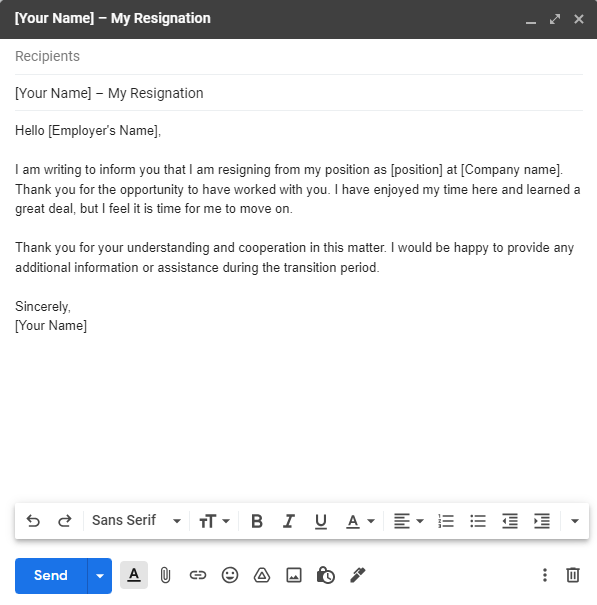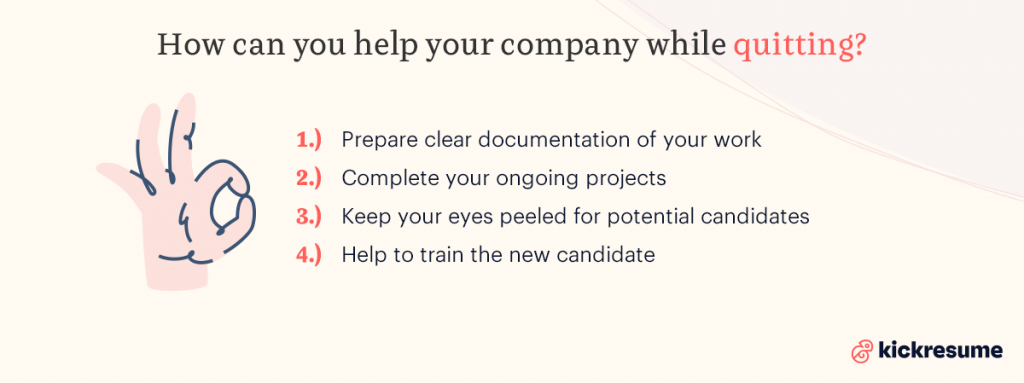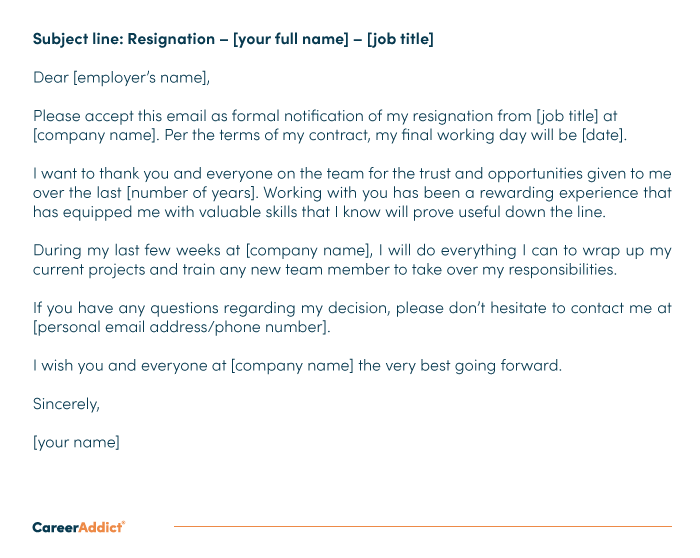How To Tell Your Boss You're Quitting For Personal Reasons

The decision to leave a job is rarely easy, but when personal matters necessitate that departure, the conversation with your employer can become particularly delicate. Navigating this conversation with grace and professionalism is crucial for maintaining positive relationships and ensuring a smooth transition.
This article provides guidance on how to approach the difficult task of informing your boss that you're resigning for personal reasons, focusing on strategies to communicate effectively while protecting your privacy.
Preparing for the Conversation
Before scheduling a meeting, carefully consider your reasons for leaving and what you're willing to share. According to a 2023 study by the Society for Human Resource Management (SHRM), employees who have a clear understanding of their needs and boundaries report a more positive resignation experience.
Prepare a resignation letter that clearly states your last day of employment. Keep the letter concise and professional, focusing on your appreciation for the opportunities you've had during your tenure.
Timing is Key
Choose a time to speak with your boss when you can both have a private and uninterrupted conversation. Mid-week mornings often provide a good balance, allowing your manager time to process the information and plan accordingly.
Avoid delivering the news right before a major deadline or during a particularly stressful period for your team. Showing consideration for the team's workload demonstrates professionalism and respect.
Communicating Your Decision
Begin the conversation by clearly stating that you are resigning. Be direct and avoid ambiguity to prevent any misunderstanding.
You can say something like, "I'm writing to inform you that I'm resigning from my position as [Your Position] effective [Your Last Day]." This sets a clear tone from the outset.
Maintaining Professionalism and Privacy
When explaining the reasons for your departure, it's perfectly acceptable to state that you're leaving for personal reasons without elaborating on the specific details. Your privacy is paramount.
Focus on what you can share, such as your need to prioritize personal matters. Avoid offering overly detailed explanations that could make you feel uncomfortable or compromise your privacy.
For instance, you might say, "I've made the difficult decision to resign due to personal matters that require my full attention. I'm grateful for the opportunities I've had here, but I need to prioritize my personal well-being at this time."
Offering Assistance During the Transition
Demonstrating a willingness to assist with the transition can leave a positive lasting impression. Offer to help train your replacement or document your processes to ensure a smooth handover.
However, be realistic about your capacity and avoid overcommitting. Set clear boundaries to protect your time and energy as you prepare for your departure.
The Exit Interview
Be prepared for an exit interview with Human Resources. Approach the interview professionally and focus on providing constructive feedback while maintaining discretion regarding your personal reasons for leaving.
Remember that an exit interview is an opportunity to offer valuable insights to your employer. Frame your feedback in a positive and constructive manner.
Leaving on a Positive Note
Express your gratitude for the opportunities and experiences you've gained during your employment. Acknowledge the positive aspects of your job and the relationships you've built with colleagues.
This is crucial. According to data from LinkedIn, maintaining professional relationships with former colleagues can be beneficial for future career opportunities.
Concluding the conversation on a positive note helps to ensure that you leave on good terms. It reinforces your professionalism and demonstrates respect for your former employer and colleagues.
Forward-Looking Considerations
Resigning for personal reasons can be a significant life decision. Take the time to assess your priorities and plan your next steps, whether it involves taking time off, pursuing further education, or seeking a new career path.
While you're not obligated to discuss your future plans with your employer, consider how your departure may affect your colleagues and the team's workload. Open and transparent communication, within the boundaries you set, can help to mitigate any potential disruption.
Remember that handling the resignation process with professionalism and respect can significantly impact your reputation and future career prospects. A well-managed departure can leave a positive lasting impression, paving the way for future opportunities and collaborations.





:max_bytes(150000):strip_icc()/how-to-tell-your-boss-you-re-quitting-your-job-2063035_FINAL-5b88037cc9e77c002cc6f46c.png)



:max_bytes(150000):strip_icc()/2063053_2022-f09cb56e07f643d79b31483a3e14f07b.jpg)








